Setting Boundaries: Navigating Family Expectations and Personal Autonomy in Childcare Responsibilities
In contemporary family dynamics, the expectation for younger, child-free family members to assume childcare responsibilities often leads to tension and misunderstandings. A recent situation highlights this issue: a 22-year-old man, having moved closer to his two sisters—one with three children and the other with two—found himself at odds with familial expectations. Despite clearly communicating his unwillingness to be a regular babysitter, he faced backlash when he declined to watch his nieces and nephews on short notice, leading to a significant argument with one sister and involvement from their mother.
This scenario underscores the complexities of familial obligations, personal boundaries, and the societal pressures that often compel individuals to prioritize family duties over personal well-being. The ensuing conflict raises questions about the balance between familial support and individual autonomy, especially when previous caregiving roles during adolescence evolve into assumed ongoing responsibilities in adulthood.
You’re expected to go the extra mile for family, but this guy was having none of it

Having recently moved closer to his family, he let everyone know that he wasn’t going to become the default babysitter


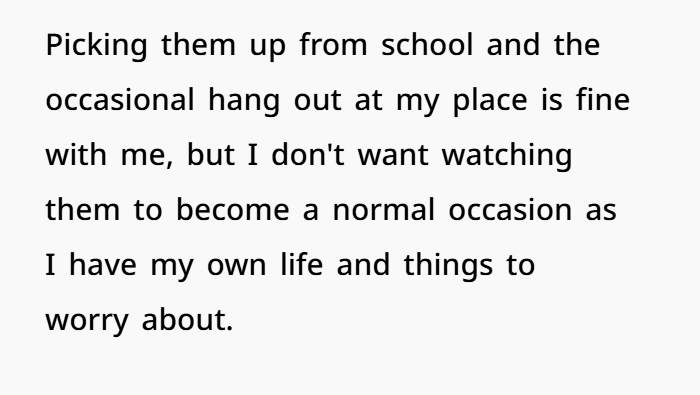

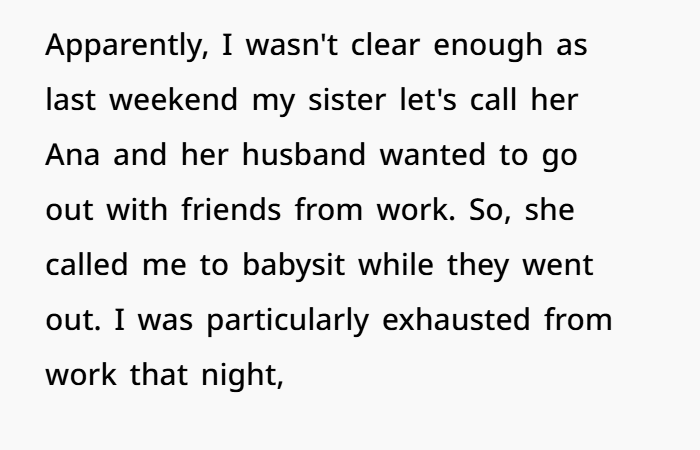
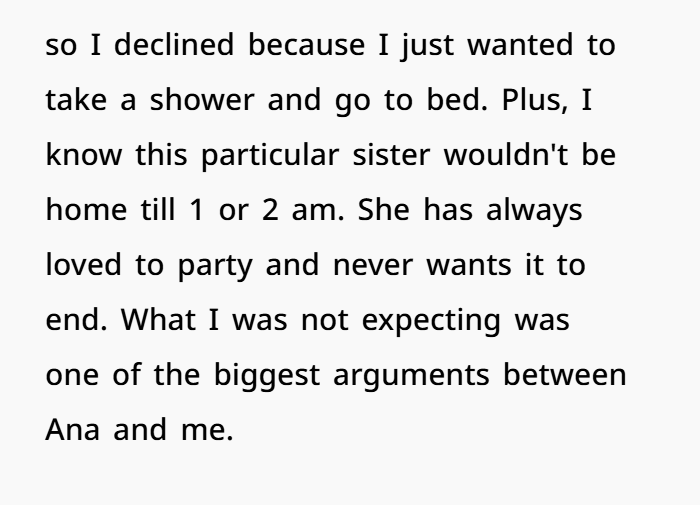

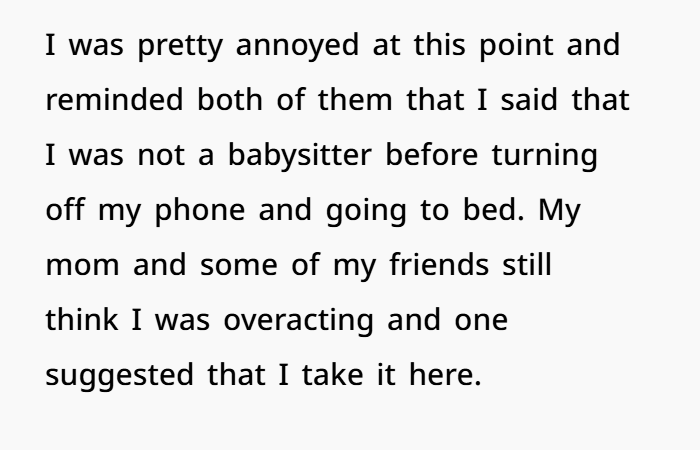

The tension arising from this situation is emblematic of broader societal and psychological patterns concerning family roles and expectations. Establishing and maintaining personal boundaries within family structures is crucial for individual well-being and healthy relationships.

1. The Importance of Setting Boundaries:
Setting clear boundaries is essential to prevent burnout and resentment. According to Sittercity, it’s vital for individuals to communicate their limits regarding childcare responsibilities to avoid being overburdened . Without established boundaries, family members may inadvertently exploit one’s time and energy, leading to strained relationships.
2. Societal Expectations and Guilt:
Societal norms often dictate that family members, especially those without children, should be readily available to assist with childcare. This expectation can lead to guilt-tripping, where individuals are made to feel selfish for prioritizing their own needs. A discussion on Reddit’s r/childfree community highlights that individuals have no obligation to babysit relatives’ children, emphasizing the importance of consent and personal choice in such matters .Reddit
3. Legal and Ethical Considerations:
From a legal standpoint, there is no obligation for individuals to provide unpaid childcare for family members. Furthermore, the distinction between occasional babysitting and regular caregiving can blur lines, potentially leading to expectations of consistent, unpaid labor. As noted by Verywell Family, relying on family for regular childcare without clear agreements can lead to feelings of exploitation and resentment .
4. Psychological Impacts:

Consistently prioritizing family demands over personal needs can lead to enmeshment, a condition where personal boundaries are diffused, and individuals become overly involved in each other’s lives. Verywell Health explains that enmeshment can hinder personal development and lead to emotional distress . Maintaining distinct personal boundaries is crucial for mental health and autonomy.Verywell Health
5. Strategies for Effective Communication:
To navigate these challenges, open and honest communication is key. Time Magazine suggests that individuals should calmly express their boundaries to family members, explaining the reasons behind their decisions and the importance of mutual respect . By doing so, families can foster understanding and reduce conflicts arising from unmet expectations.
In the comments, readers swiftly concluded that the guy was not the jerk in the situation and is under no obligation to babysit his nieces, no matter what his mom says
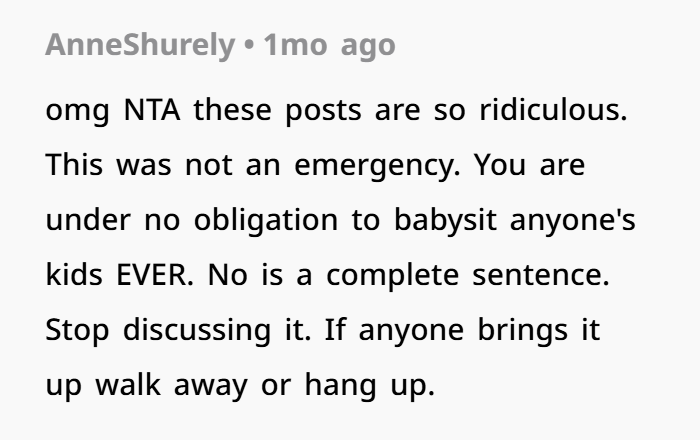

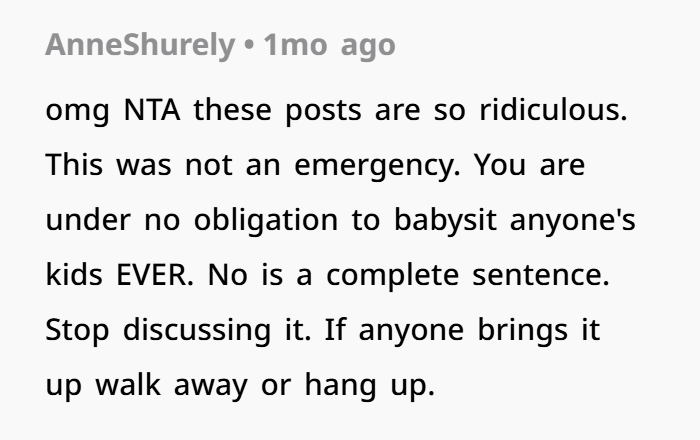
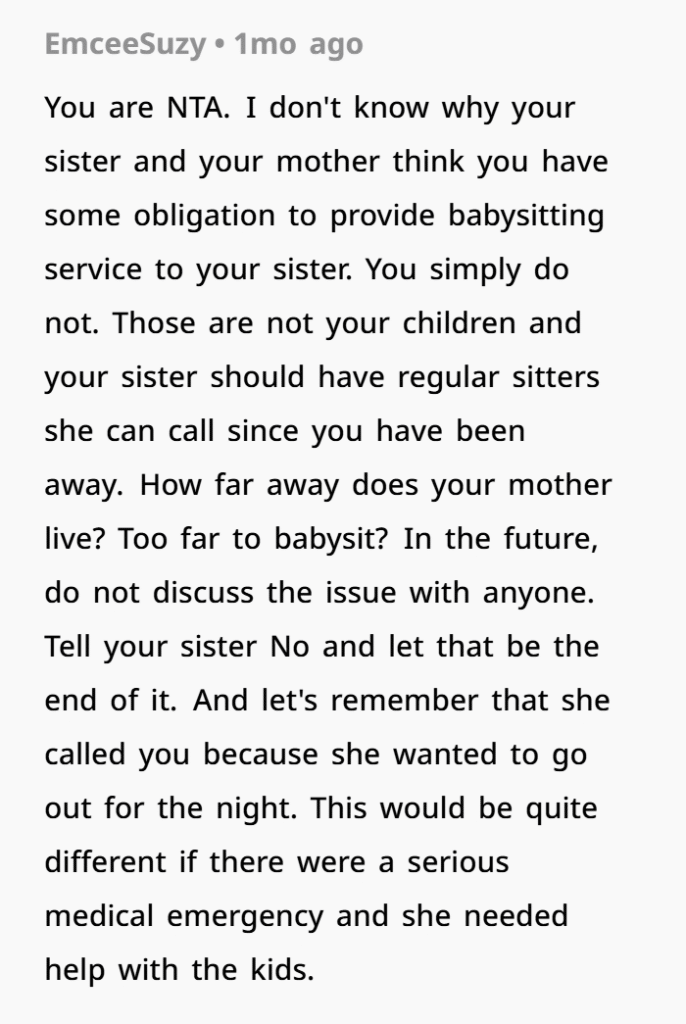

Navigating family expectations regarding childcare requires a delicate balance between offering support and maintaining personal autonomy. By establishing clear boundaries, communicating effectively, and understanding the psychological and societal factors at play, individuals can foster healthier family dynamics and ensure their own well-being.

